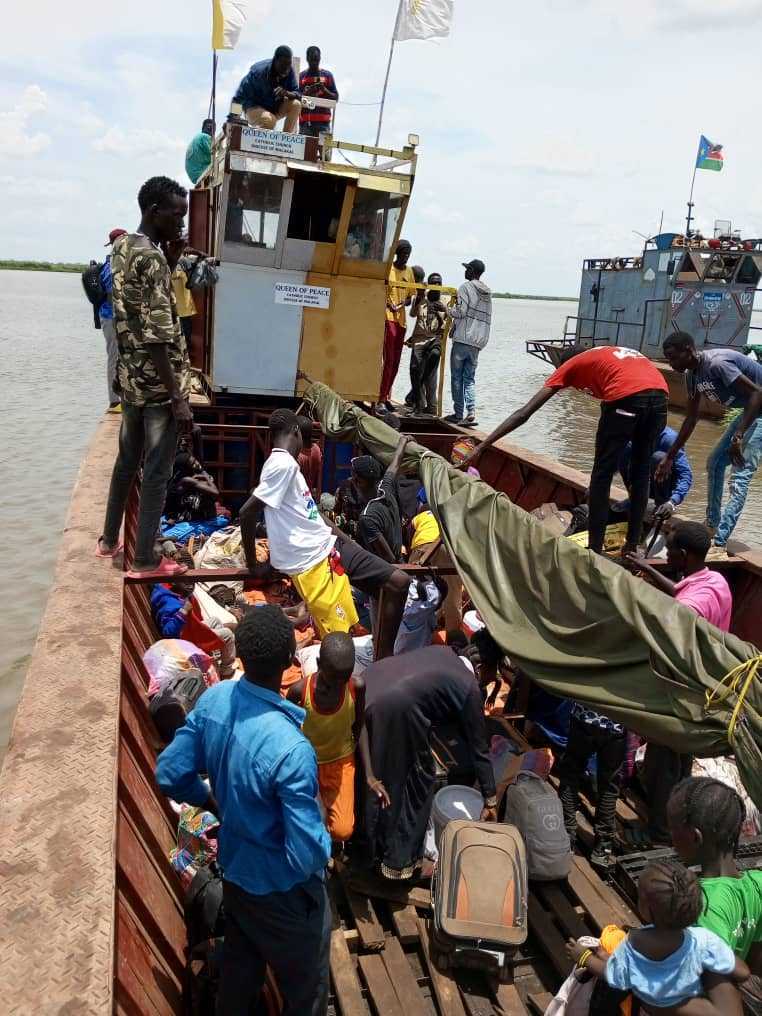
South Sudanese Refugees Flee Sudan, Face Challenges Returning Home
These were the lucky ones. They made it onto a boat and across the border into South Sudan, away from the violent fighting that broke out weeks ago in Sudan. Thousands of South Sudanese who fled war in their country years ago by migrating to the northern nation of Sudan, now find themselves fleeing Sudan’s war to return to their native country.
But despite the absence of immediate war in South Sudan, there is little here for them at the meager port town of Renk when they arrive. Thousands who were able to ferry here are now camping out in Renk with the few belongings they could carry with them.
There’s no humanitarian camp set up here. Refugees use sticks to hold up a sheet or blanket for shelter from the sun. They sit for hours and days. And they wait.
Many hope to get transportation down the waterway to the city of Malakal – where over 40,000 people already crowd into a displacement camp that hosts twice as many refugees as intended. Others have no funds to get transportation to the nation’s capital city of Juba or other parts of South Sudan where they hope to return.
There are no sanitation facilities for the thousands camped in Renk. No medical help or triage sites. Some who arrive are injured from escaping the violence in Sudan. One woman who was shot from stray gunfire and can no longer walk sits on the ground with a bullet still lodged in her lower back. That was three weeks ago.
Humanitarian organizations have set up the bare minimum of food and water provisions for the refugees in limbo here. But with little else and more returnees arriving daily, it is feared if the people aren’t moved onward soon, disease will break out.
Fighting among traumatized young men has already become a problem, with a skirmish around the water source escalating into 30 people injured and one killed. After that incident, many left the immediate area to camp along roadsides in Renk, where they have no access to food or water.
Aid organizations don’t want to set up a humanitarian camp in Renk. It is only seen as a transitional stop for returnees en route to other locations in the country. Instead the goal is to help refugees find means of transportation to their destinations, and provide support in their home areas.
“I’m concerned for our health,” says 50 year-old Awok Yak Wek, who was visiting her children in Khartoum before the fighting broke out. Ngong Malong Ngor, a 70 year-old elder from the same community as Awok, expressed his fears. “If we are not transported in the coming days, we are going to die here.” Read more here.
